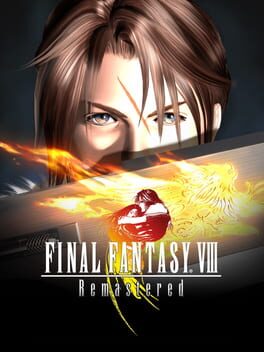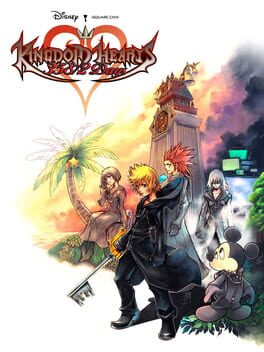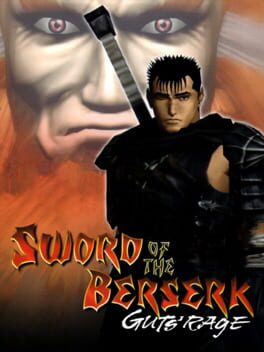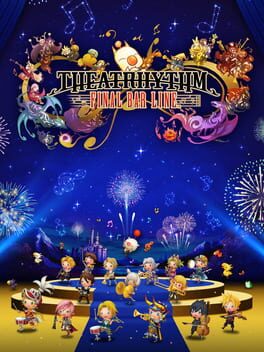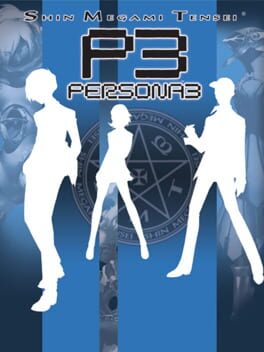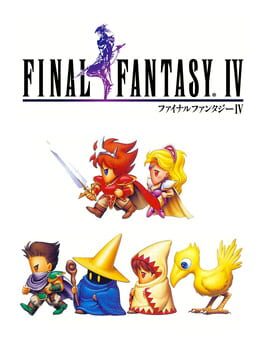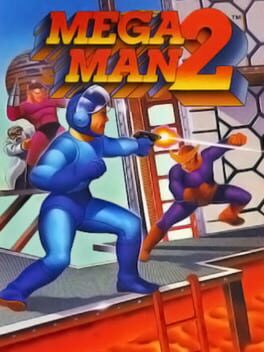nutsomething
79 reviews liked by nutsomething
In 2020, the Walt Disney Company released “Into the Unknown: Making Frozen 2.” A six part documentary series detailing the trials and tribulations of making Frozen 2. I never saw the actual movie but I think a lot about the documentary. The series tries to clean up the appearances of production, making the process appear seamless and careful. But they always manage to let slip various telling details about the film’s creation. They reveal how cool animations and songs were built before they built the plot, even up to the final months before release. There’s this… naivety in their tone. They gleefully discuss with each other if THIS will be the new Let It Go, completely blind to just how creativity hollow they come across. No one did a bad job, they were all putting in incredible effort. But they were laser-focused on creating the next Big Cash Cow Beloved Success Like Frozen. Not a single person is ever thinking about how to make a new story.
I don’t think the team behind Final Fantasy 8 is as bad as that, really. There’s clearly an intent here to move forward and evolve the franchise. They’ve discovered a new art style and dynamic for its characters. They’re continuing to build complicated political dynamics for the backstory of the world. They’ve polished up their minigames and created a genuinely genius card game with Triple Triad. There’s a genuine passion for these characters and their lives.
At the same time, it’s hard to escape the shadow of FF7. Squall is very much a new Cloud, albeit with a bit more self-awareness than Cloud had. Rinoa is very much a new Aerith, albeit with an arc that shifts into much stranger directions. The supporting cast aren’t copies of other characters, but there’s also not a lot of details into their personal lives when they aren’t on screen. They don’t get complete arcs like FF7 characters do. The memory shenanigans introduced in Disc 2 are nowhere near as developed or thematically important as FF7, but they just sort of decide to take a swing at doing that plot. It vanishes just as quickly as it’s introduced. The villain is introduced with the same overwhelming power and presence of Sephiroth but ends up nowhere near as developed. We never really get to sit down with the Sorceress and be like “hey. What’s going on. Why are you doing this?” We just sort have to guess at what happened to her from context clues. All these half-baked repetitions of old ideas just sort of vaguely stumble around the narrative, taking away from the main ideas.
It’s when the game is embracing that original imagery to create new ideas that it truly seems to soar. While FF8 repeats the FF7 journey into space, they commit so hard to the insanity of “monsters come from the moon” that it wraps around to incredible again. The climatic drama of Squall and Rinoa’s reunion with each other in Disc 3, even as chaos spins down into the Earth and their subsequent heart to heart, is genuinely one of the most gorgeous images I’ve ever seen in gaming. It truly won me over on a couple I felt somewhat neutral on for most of the game. The entire final dungeon and the extremely surreal events around it is a genuine delight and it showcases the real ambition the development team possessed. The entire time travel concepts it throws at you are so completely wild and weird that I wish the game committed more to that weirdness. The story is such a slow burn and so focused on Squall that it takes a while for those bold ideas to come to fruition.
FF8 is really an internal game above all else. For as much as I was initially annoyed by Squall kinda being Cloud 2, the truth is that you get to understand Squall’s internal process earlier than Cloud. Cloud’s a quiet guy. Squall is too, which is why his inner monologues are so essential to his character. You can watch him shift and change and justify himself. It’s genuinely engaging! The problem for me is that Squall’s monologue is so present, we never quite get a look at the internal workings of anyone else except Rinoa and Laguna.
Speaking of which, Laguna is just delightful. I’m sure it’s not a hot take that many people prefer him to Squall. But what makes Laguna work is the fact that his life is constantly falling apart, over and over again, yet he still tries to maintain his good cheer and optimism. You just get moments of a guy’s life. It’s nice.
I talked about the problems with the villain, but Seifer is genuinely a fascinating weirdo. He's a mess of a person who's fixated on the what he thinks he deserves and the delusion he feeds to justify that mentality. He sort of escapes unharmed by the story's end, but at that point its better for everyone that he just goes to retire and become a sad fisherman.
The gameplay is… weird. The Junction system takes a lot of getting used to and I think there has to be a way to pull it off without making me spend so much time in menus. I get the sense that the goal was for players to use magic and MP more. But in action, tying that to your stats means I’m still not using magic. I don’t want my stats to go lower. And then the leveling up system means that the enemies frequently overpowered my lower leveled allies no matter where I was. I generally played FF7 and FF9 remasters on their own terms. But with 8, I eventually had to give in and keep the remaster's invincibility mode on full time just to survive the full game.
I dunno! The whole game is messy and complicated, sometimes for the better and sometimes for the worse. Disc 2 and early Disc 3 felt like an arduous slog that I genuinely considered dropping, only to drastically improve post-Esthar and Disc 4. I wanted more and less from this game. I'll probably deciphering my feelings on it for a while. At the very least, I can say they took some swings and some of them landed.
I don’t think the team behind Final Fantasy 8 is as bad as that, really. There’s clearly an intent here to move forward and evolve the franchise. They’ve discovered a new art style and dynamic for its characters. They’re continuing to build complicated political dynamics for the backstory of the world. They’ve polished up their minigames and created a genuinely genius card game with Triple Triad. There’s a genuine passion for these characters and their lives.
At the same time, it’s hard to escape the shadow of FF7. Squall is very much a new Cloud, albeit with a bit more self-awareness than Cloud had. Rinoa is very much a new Aerith, albeit with an arc that shifts into much stranger directions. The supporting cast aren’t copies of other characters, but there’s also not a lot of details into their personal lives when they aren’t on screen. They don’t get complete arcs like FF7 characters do. The memory shenanigans introduced in Disc 2 are nowhere near as developed or thematically important as FF7, but they just sort of decide to take a swing at doing that plot. It vanishes just as quickly as it’s introduced. The villain is introduced with the same overwhelming power and presence of Sephiroth but ends up nowhere near as developed. We never really get to sit down with the Sorceress and be like “hey. What’s going on. Why are you doing this?” We just sort have to guess at what happened to her from context clues. All these half-baked repetitions of old ideas just sort of vaguely stumble around the narrative, taking away from the main ideas.
It’s when the game is embracing that original imagery to create new ideas that it truly seems to soar. While FF8 repeats the FF7 journey into space, they commit so hard to the insanity of “monsters come from the moon” that it wraps around to incredible again. The climatic drama of Squall and Rinoa’s reunion with each other in Disc 3, even as chaos spins down into the Earth and their subsequent heart to heart, is genuinely one of the most gorgeous images I’ve ever seen in gaming. It truly won me over on a couple I felt somewhat neutral on for most of the game. The entire final dungeon and the extremely surreal events around it is a genuine delight and it showcases the real ambition the development team possessed. The entire time travel concepts it throws at you are so completely wild and weird that I wish the game committed more to that weirdness. The story is such a slow burn and so focused on Squall that it takes a while for those bold ideas to come to fruition.
FF8 is really an internal game above all else. For as much as I was initially annoyed by Squall kinda being Cloud 2, the truth is that you get to understand Squall’s internal process earlier than Cloud. Cloud’s a quiet guy. Squall is too, which is why his inner monologues are so essential to his character. You can watch him shift and change and justify himself. It’s genuinely engaging! The problem for me is that Squall’s monologue is so present, we never quite get a look at the internal workings of anyone else except Rinoa and Laguna.
Speaking of which, Laguna is just delightful. I’m sure it’s not a hot take that many people prefer him to Squall. But what makes Laguna work is the fact that his life is constantly falling apart, over and over again, yet he still tries to maintain his good cheer and optimism. You just get moments of a guy’s life. It’s nice.
I talked about the problems with the villain, but Seifer is genuinely a fascinating weirdo. He's a mess of a person who's fixated on the what he thinks he deserves and the delusion he feeds to justify that mentality. He sort of escapes unharmed by the story's end, but at that point its better for everyone that he just goes to retire and become a sad fisherman.
The gameplay is… weird. The Junction system takes a lot of getting used to and I think there has to be a way to pull it off without making me spend so much time in menus. I get the sense that the goal was for players to use magic and MP more. But in action, tying that to your stats means I’m still not using magic. I don’t want my stats to go lower. And then the leveling up system means that the enemies frequently overpowered my lower leveled allies no matter where I was. I generally played FF7 and FF9 remasters on their own terms. But with 8, I eventually had to give in and keep the remaster's invincibility mode on full time just to survive the full game.
I dunno! The whole game is messy and complicated, sometimes for the better and sometimes for the worse. Disc 2 and early Disc 3 felt like an arduous slog that I genuinely considered dropping, only to drastically improve post-Esthar and Disc 4. I wanted more and less from this game. I'll probably deciphering my feelings on it for a while. At the very least, I can say they took some swings and some of them landed.
Final Fantasy VIII
1999
I have a big soft spot for this game, but I think it doesn't quite hold up as well as its peers. There's a lot to love. The game has the most amazing, most cinematic, most bombastic set pieces in the series up to this point. X-ATM 092 chasing you through Dollet, the parade assassination, the battle of the gardens, the lunar cry. Junctioning and drawing, min-maxing your stats, I love it all.
The problem is the whole isn't quite the sum of its parts. The plot connecting the set pieces is just not as good as the set pieces themselves. The Battle of the Gardens, for instance, happens more-or-less because the Gardens bump into each other. There are no particular stakes to it, it doesn't change anything, and it doesn't feel very connected to the next plot beat (Rinoa going into a coma). The revelation that all the main characters are amnesiac orphans is just thrown out by Irvine at no point in particular. I have a friend who's fond of saying the game needed a second draft. I'm inclined to agree.
Mechanically, it feels the complete opposite of its predecessor, where materia started out simple and had you waiting half the game to get interesting, Guardian Force and junctioning are super complicated right out the gate, but fail to really develop or evolve as the game goes on. I found the game most difficult at the start, then super easy right up until Omega Weapon. My biggest disappointment here is there's no real incentive to specialise or diversify, I ended the game with three beefcakes who could smack enemies hard with the fight command and absorb any amount of punishment. Still really chasing the SNES peak where I could spread out all the game's toys between the full party.
Still, a good time, and I'd love to see it revisited someday to redraft the rougher bits of the story. If you haven't played it, here's my advice: unlock "Encounter None" on Diabolos and never, ever feel bad about using it!
The problem is the whole isn't quite the sum of its parts. The plot connecting the set pieces is just not as good as the set pieces themselves. The Battle of the Gardens, for instance, happens more-or-less because the Gardens bump into each other. There are no particular stakes to it, it doesn't change anything, and it doesn't feel very connected to the next plot beat (Rinoa going into a coma). The revelation that all the main characters are amnesiac orphans is just thrown out by Irvine at no point in particular. I have a friend who's fond of saying the game needed a second draft. I'm inclined to agree.
Mechanically, it feels the complete opposite of its predecessor, where materia started out simple and had you waiting half the game to get interesting, Guardian Force and junctioning are super complicated right out the gate, but fail to really develop or evolve as the game goes on. I found the game most difficult at the start, then super easy right up until Omega Weapon. My biggest disappointment here is there's no real incentive to specialise or diversify, I ended the game with three beefcakes who could smack enemies hard with the fight command and absorb any amount of punishment. Still really chasing the SNES peak where I could spread out all the game's toys between the full party.
Still, a good time, and I'd love to see it revisited someday to redraft the rougher bits of the story. If you haven't played it, here's my advice: unlock "Encounter None" on Diabolos and never, ever feel bad about using it!
I only watched the HD cutscenes but like, how the FUCK is Roxas not diabetic this mf eats ice cream every goddamn day. Does he even eat food? This guy is living off of ice cream. I know he doesn't have a heart but does that also mean he doesn't have a stomach? This is the most important part of the entire game/movie. Why isn't Roxas obese?
Final Fantasy VIII
1999
This review contains spoilers
Final Fantasy Marathon Review #3
I respect the subversiveness of this game a lot and it’s laudable that Square went for something so experimental right off the heels of FFVII, but I would be lying if I thought the result was very successful - for every interesting thing it does there’s ample flaws to compensate - or at least, things I don’t think work well. The way this game is composed readily opens itself up to saying that any given flaw is part of the overall point, especially in the narrative, and I do think that aspect of it is interesting, but for me at least I wasn’t drawn to a lot of these interpretations so the result was fairly mixed.
The junction system is tragically close to being amazing. It’s understandable that so many misunderstand it considering it’s one of the most poorly tutorialized mechanics I’ve seen in recent memory, the UI is a nightmare, GFs default to learning useless skills and it’s incredibly unintuitive to hoard magic instead of using it, but the fundamental idea behind it is great. Instead of a traditional levelling and MP system, you have a sort of magical economy - triple triad cards get turned into items, those items get turned into magic, low-level magic gets converted into high-level magic, it’s this glue that binds the disparate mechanics together and it makes decision-making (at least in theory) more interesting when you are essentially sacrificing your stats to cast strong magic. I like the implications it has for character switching too; instead of individual builds, you essentially have three different loadouts that you pass around the cast, which feels quite flexible when it’s working.
It’s a shame the whole thing is largely undermined by the ability to draw an infinite amount of magic out of a single enemy, and it’s this more than anything which ruins the system for me. You can’t have a resource economy and then give the player an easy, low-risk way to max out the resource as long as they’re willing to stand around for a bit. This could be defended by saying that drawing a max stack out of an enemy is this system’s equivalent to grinding and shouldn’t be considered intended play, but I don’t find that defence very convincing. In a traditional system, it’s quite clear when you’re grinding, walking back and forth and trying to get into encounters instead of progressing. Whereas here, there’s nothing to signpost or demarcate any stopping point to drawing - because it’s confined to a single encounter, you just keep doing it until you get bored or max out the magic. For me it was often the latter, and the game was very unengagingly easy as a result, but I think I would still say that overall, the combat in this is much more interesting than VII’s.
Weirdly though, it’s more so the minutiae which brings down the gameplay for me. I immediately noticed something off about the game feel and that never really went away: Loading screens are even longer than VII, attack and spell animations feel much slower with less weight, I found myself getting annoyed with the pre-rendered backgrounds a lot more here than VII, often it was confusing where I had to go to progress, where screen transition zones were and what was traversable (shoutout to the random crane you have to walk on at the start of Disc 4) and interacting with the background was a lot more fiddly and unresponsive (shoutout to the random floor tile you have to interact with to find the sniper in Deling City). Environments and scenario design are also quite poor: You go from a repetitive, copy-paste, maze-like sewer level in Deling City into a prison escape with copy-paste floors that all look the same, into searching for Cid by tediously going through every room in Balamb Garden, into an annoying sequence where you search repetitive, copy-paste rooms and corridors in Galbadia Garden to find keycards, into Esthar City - which has a cool design but is excruciating to traverse with its long, empty, and narrow footpaths. You can’t tell me I’m misremembering VII and that it had the same issues either! I played it for the first time last week and this really made me appreciate how hand-crafted all of VII’s environments feel in comparison.
As for the story and characters… I feel this game really suffers from how slow it is to get going, it’s not until well into Disc 2 that the main cast starts to have a real rapport, which isn’t a problem in terms of internal narrative, considering they’ve literally forgotten their history with one-another, but on a meta-experiential level it does result in a first disc where it feels like there’s no chemistry between the characters or much characterisation or backstory for any of them besides Rinoa, which especially stings coming straight from VII, where the cast have instant cohesion and all generally feel like they have an authentic place in the world distinct from their function as party members (with the deliberate exception of Cloud). I think a lot of this is just a result of having 5 out of the 6 party members be SeeDs who have spent their whole lives inside the Garden with little connection to the outside world - there are no moments like Nanaki’s arc in Cosmo Canyon in VII, for example.
The worldbuilding feels very thin too. Very basic questions about the world like what the Galbadian’s whole deal is and why they worship the sorceress or… what the hell even is a sorceress and where do their powers come from and how does Edea transfer her powers to Rinoa “without realising it”?… what is “Guardian Force” and why does it make you forget things and what is the relationship between GFs and the civilizations of the world? What is so special about SeeDs for them to be considered such a powerful force when it seems like anyone can use GFs? Don’t even get me started on “time compression”... only some of these questions get answered and even they arrive only dozens of hours after they get raised. I recognise that, to some degree, this is the point. Squall and the player are supposed to feel like they’re being jostled about by forces bigger than them, but it’s really unsatisfying when you’re just sitting through text laden with jargon that you don’t have a meaningful grasp on. Again, I like the disregard for narrative conventions in principle, but it feels like there’s so many narrative dead-ends here that my good-will for this exercise runs thin pretty quickly. Laguna is probably the worst of these, the game creates this intrigue in the relationship between him and the party and so much time is devoted to these flashback sequences and it amounts to… he’s just the president of Esthar? He’s not important to the plot at all? You’re telling me passionate doo-gooder himbo Laguna didn’t search for his daughter-figure Ellone for like, over a decade because he was “busy”? That’s actually what he says, he was “busy”. Seifer also goes nowhere, we learn basically nothing about his deeper emotional state or his motivations for doing what he does and he undergoes no development and barely appears past Disc 1 (despite being on the cover of the game!). Cid and NORG’s whole plot point is glossed over and then discarded, Zell gets the setup for an arc but no followthrough, you get the point.
On the bright side, the emotional core of Squall and Rinoa’s romance is actually quite good and feels like a successful execution of that disregard for convention. Instead of Cloud and Aerith’s instant storybook chemistry, Squall and Rinoa don’t care for each other at first and their personalities clash heavily. It’s only after considerable time has passed and Rinoa is gone that Squall realises he actually loves her, and I love how this complements the overarching themes about yearning for the past which is already gone. It’s a much more realistic portrayal of romantic feelings; taking someone for granted and thinking you don’t care about them until they’re gone and you realise they were actually incredibly important to you and wanting them back.
Gotta give it props for having the best battle theme and the best boss theme too. Even if I prefer VII’s soundtrack overall, this one is pretty damn good.
I should also mention triple triad since it’s such a large part of the game. It’s decent, I like the flavour of it more than the act of playing it. I think it gets pretty uninteresting once you have a roster of top-tier cards and you can kinda invalidate anyone with weaker cards, and the rules are there to make things more interesting with this in mind. It’s cool how different regions have different rules (bizarrely one of the most grounded details of the worldbuilding) though some of the lategame rules are kinda bullshit. Once you start combining closed with same/plus and random, it feels like you can just lose based on bad luck a lot more, maybe I just suck though!
There’s some really diehard fans of this one so I hope I can come back sometime and appreciate it more. Knowing in advance that IX will play it relatively safe might make me appreciate the weirdness here a lot more in retrospect, but for now, I like it, just not a lot. But onto IX we go!
-----------
Previous FF Reviews
FFV
FFVII
I respect the subversiveness of this game a lot and it’s laudable that Square went for something so experimental right off the heels of FFVII, but I would be lying if I thought the result was very successful - for every interesting thing it does there’s ample flaws to compensate - or at least, things I don’t think work well. The way this game is composed readily opens itself up to saying that any given flaw is part of the overall point, especially in the narrative, and I do think that aspect of it is interesting, but for me at least I wasn’t drawn to a lot of these interpretations so the result was fairly mixed.
The junction system is tragically close to being amazing. It’s understandable that so many misunderstand it considering it’s one of the most poorly tutorialized mechanics I’ve seen in recent memory, the UI is a nightmare, GFs default to learning useless skills and it’s incredibly unintuitive to hoard magic instead of using it, but the fundamental idea behind it is great. Instead of a traditional levelling and MP system, you have a sort of magical economy - triple triad cards get turned into items, those items get turned into magic, low-level magic gets converted into high-level magic, it’s this glue that binds the disparate mechanics together and it makes decision-making (at least in theory) more interesting when you are essentially sacrificing your stats to cast strong magic. I like the implications it has for character switching too; instead of individual builds, you essentially have three different loadouts that you pass around the cast, which feels quite flexible when it’s working.
It’s a shame the whole thing is largely undermined by the ability to draw an infinite amount of magic out of a single enemy, and it’s this more than anything which ruins the system for me. You can’t have a resource economy and then give the player an easy, low-risk way to max out the resource as long as they’re willing to stand around for a bit. This could be defended by saying that drawing a max stack out of an enemy is this system’s equivalent to grinding and shouldn’t be considered intended play, but I don’t find that defence very convincing. In a traditional system, it’s quite clear when you’re grinding, walking back and forth and trying to get into encounters instead of progressing. Whereas here, there’s nothing to signpost or demarcate any stopping point to drawing - because it’s confined to a single encounter, you just keep doing it until you get bored or max out the magic. For me it was often the latter, and the game was very unengagingly easy as a result, but I think I would still say that overall, the combat in this is much more interesting than VII’s.
Weirdly though, it’s more so the minutiae which brings down the gameplay for me. I immediately noticed something off about the game feel and that never really went away: Loading screens are even longer than VII, attack and spell animations feel much slower with less weight, I found myself getting annoyed with the pre-rendered backgrounds a lot more here than VII, often it was confusing where I had to go to progress, where screen transition zones were and what was traversable (shoutout to the random crane you have to walk on at the start of Disc 4) and interacting with the background was a lot more fiddly and unresponsive (shoutout to the random floor tile you have to interact with to find the sniper in Deling City). Environments and scenario design are also quite poor: You go from a repetitive, copy-paste, maze-like sewer level in Deling City into a prison escape with copy-paste floors that all look the same, into searching for Cid by tediously going through every room in Balamb Garden, into an annoying sequence where you search repetitive, copy-paste rooms and corridors in Galbadia Garden to find keycards, into Esthar City - which has a cool design but is excruciating to traverse with its long, empty, and narrow footpaths. You can’t tell me I’m misremembering VII and that it had the same issues either! I played it for the first time last week and this really made me appreciate how hand-crafted all of VII’s environments feel in comparison.
As for the story and characters… I feel this game really suffers from how slow it is to get going, it’s not until well into Disc 2 that the main cast starts to have a real rapport, which isn’t a problem in terms of internal narrative, considering they’ve literally forgotten their history with one-another, but on a meta-experiential level it does result in a first disc where it feels like there’s no chemistry between the characters or much characterisation or backstory for any of them besides Rinoa, which especially stings coming straight from VII, where the cast have instant cohesion and all generally feel like they have an authentic place in the world distinct from their function as party members (with the deliberate exception of Cloud). I think a lot of this is just a result of having 5 out of the 6 party members be SeeDs who have spent their whole lives inside the Garden with little connection to the outside world - there are no moments like Nanaki’s arc in Cosmo Canyon in VII, for example.
The worldbuilding feels very thin too. Very basic questions about the world like what the Galbadian’s whole deal is and why they worship the sorceress or… what the hell even is a sorceress and where do their powers come from and how does Edea transfer her powers to Rinoa “without realising it”?… what is “Guardian Force” and why does it make you forget things and what is the relationship between GFs and the civilizations of the world? What is so special about SeeDs for them to be considered such a powerful force when it seems like anyone can use GFs? Don’t even get me started on “time compression”... only some of these questions get answered and even they arrive only dozens of hours after they get raised. I recognise that, to some degree, this is the point. Squall and the player are supposed to feel like they’re being jostled about by forces bigger than them, but it’s really unsatisfying when you’re just sitting through text laden with jargon that you don’t have a meaningful grasp on. Again, I like the disregard for narrative conventions in principle, but it feels like there’s so many narrative dead-ends here that my good-will for this exercise runs thin pretty quickly. Laguna is probably the worst of these, the game creates this intrigue in the relationship between him and the party and so much time is devoted to these flashback sequences and it amounts to… he’s just the president of Esthar? He’s not important to the plot at all? You’re telling me passionate doo-gooder himbo Laguna didn’t search for his daughter-figure Ellone for like, over a decade because he was “busy”? That’s actually what he says, he was “busy”. Seifer also goes nowhere, we learn basically nothing about his deeper emotional state or his motivations for doing what he does and he undergoes no development and barely appears past Disc 1 (despite being on the cover of the game!). Cid and NORG’s whole plot point is glossed over and then discarded, Zell gets the setup for an arc but no followthrough, you get the point.
On the bright side, the emotional core of Squall and Rinoa’s romance is actually quite good and feels like a successful execution of that disregard for convention. Instead of Cloud and Aerith’s instant storybook chemistry, Squall and Rinoa don’t care for each other at first and their personalities clash heavily. It’s only after considerable time has passed and Rinoa is gone that Squall realises he actually loves her, and I love how this complements the overarching themes about yearning for the past which is already gone. It’s a much more realistic portrayal of romantic feelings; taking someone for granted and thinking you don’t care about them until they’re gone and you realise they were actually incredibly important to you and wanting them back.
Gotta give it props for having the best battle theme and the best boss theme too. Even if I prefer VII’s soundtrack overall, this one is pretty damn good.
I should also mention triple triad since it’s such a large part of the game. It’s decent, I like the flavour of it more than the act of playing it. I think it gets pretty uninteresting once you have a roster of top-tier cards and you can kinda invalidate anyone with weaker cards, and the rules are there to make things more interesting with this in mind. It’s cool how different regions have different rules (bizarrely one of the most grounded details of the worldbuilding) though some of the lategame rules are kinda bullshit. Once you start combining closed with same/plus and random, it feels like you can just lose based on bad luck a lot more, maybe I just suck though!
There’s some really diehard fans of this one so I hope I can come back sometime and appreciate it more. Knowing in advance that IX will play it relatively safe might make me appreciate the weirdness here a lot more in retrospect, but for now, I like it, just not a lot. But onto IX we go!
-----------
Previous FF Reviews
FFV
FFVII
